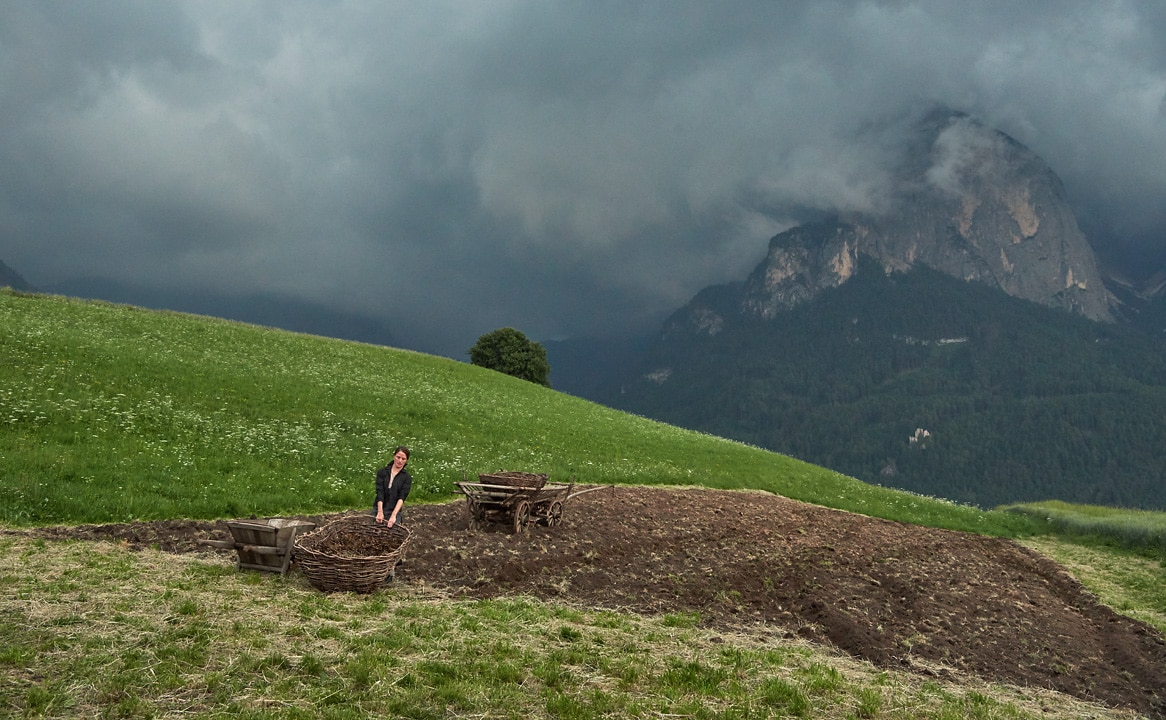Words we live by— metanarrative and narrative.
Most of us find it possible to get on with our lives without using those two words every day, if ever. But whether they make their way into our minds, we live with them from morning to night, as their realities are integrally woven into every heart.
Everyone everywhere lives out their meaning, whether we do so consciously or not. The first word is born of the belief that there is a story that shapes human life under the sun. Whether we are premodern, modern, or postmodern, whether we are Hindus, evolutionary materialists, Buddhists, Marxists, Jews, Christians, Moslems— or imagine some other way of making sense of the universe in which we live, move, and have our being —all of us believe something to be true about life and the world. No one is finally neutral about the things that matter most.
The second word is more personal, accounting for me, myself, and I. Who am I? Why am I? What am I going to do with my life? But because life is what it is, our beliefs about the one shape and form the other; in reality, we go back and forth, forth and back. Metanarratives shape narratives, but then, narratives shape metanarratives. Beliefs form behavior, and behavior forms belief.
As Augustine taught us so long ago, the question, “What do you love?” is the most important question of life, deeper and more probing than, “What do you believe?” It is about the way we live, about the way we are, about what matters most to us, whether we understand its reality or not. Beliefs matter, yes; but even more so, our loves and lives matter. “What will you do with what you know?” being the most primordial question of all, echoing through time, becoming the most perennial question of all.
This past week I have drawn these words into two classes I am teaching, one for the Masters in Leadership, Theology and Society course, and one for the Gospel and Culture course. They are good words, full of meaning, and they give meaning to our lives— and in a surprising way they are addressed with unusual clarity in the films of Terrence Malick, the director whose work is stellar, even if not blockbuster. The critics and his peers judge him to be about the best there is at making movies, even if the local cineplex has a hard time finding an audience for his films.
Why is that? It is worthwhile wondering what happened to human beings in the modern world, as the 20th-century becomes more and more the 21st-century. Wise ones write about us, arguing that we are “amusing ourselves to death” in Neil Postman’s sober assessment; or in the words of Nicholas Carr, we are increasingly drawn to “the shallows,” less interested in stories of substance that require the complexity and nuance of critical reflection. That has meaning for the whole of life, from our schools to our politics, from our friendships to our films.
But if we want, there are movies that ask more, ones that by their very nature insist that we resist the temptation to simply leave our brains at the box-offices of life. (None of us should be snobs about anything, and I understand that his more serious stories are not for every day, or even every night. Sometimes we want something more simple — and we are not being simplistic.)

For example, the “Tree of Life” is Malick’s artful reflection on “metanarrative,” a film that explores the most important questions of life. With neither footnotes nor hand-holding, we are drawn into a vision of the way the world was meant to be, the way the world is, the way the world could be, and the way the world someday will be — but it is only viewers who have eyes to see who will see that. Simply said, it is the Story of Stories — from creation to consummation —without a blush. As one review in the NY Times put it, “Very few contemporary filmmakers venture so boldly or grandly onto the primordial terrain of philosophical and religious inquiry where the answers to basic and perennial questions seem to lie. Why are we here? How do we know? What does it mean?” Yes. (At Cannes, for blessing and curse the most highly curated film festival in the world, the film won the Palme d’Or, judged as the best of the best in 2011.)
“A Hidden Life” is a story born of a true story of a man in the middle years of the 20th-century whose deepest commitments and loves are so metaphysically and morally rooted that he cannot and will not “Heil Hitler.” Believing that a truer patriotism meant that he must not give his loyalty to the Fuhrer and the Fatherland, Franz Jägerstätter saw himself implicated for love’s sake in the way the world shouldn’t be, and should be. A husband and a father, a farmer and a friend, his choices grew out of his Christian faith, even when the Church of his day was complicit in the ideology which became an idolatry— and he bore the cost of his discipleship, painfully and terribly.

Not everyone will see these films, I know, but I wanted my students to see that these ideas of metanarrative and narrative are written into the stories of the screens of everyone’s life; in a word, that the ideas have “legs” in the world in which we all live— because all of us see and hear out of our hearts, and our hearts are formed by pre-theoretic commitments that are so deep within us that we cannot live any other way. We live out of our loves, whether we mean to or not, whether we intend to or not.
The challenge is to be folk who choose well, finding faith in ideas that are true to the way the world really is, that make sense of our longing for a morally meaningful universe, and that, push-come-to-shove, give us the courage to live with an integrity of heart and mind that holds onto to our humanity. At the end of the day, the vocation for every son of Adam and daughter of Eve is always the same, that of deepening the coherence between who God is and who we are, between what God’s world means and what our lives mean— rather than dismantling that relationship of metanarrative to narrative, resulting in the abolition of human being, and of our world.
For more on Malick and his work, see these reviews:






